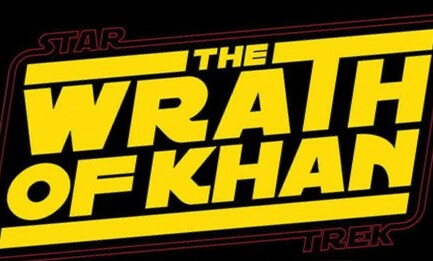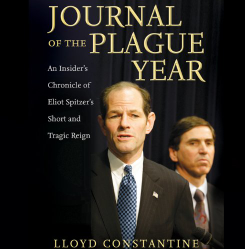Extravagant power about to be exercised or smoke and mirrors? More the latter but some of the former with some real ability to do things, but other than what is hoped for and promised of her: Lina Khan, the new 32-year-old chair of the Federal Trade Commission.

Lina Khan
Unlike the still unnominated Assistant Attorney General in charge of the Justice Department’s Antitrust Division, who unilaterally can get stuff done, the FTC chair (“Chairman” by statute) has one of five votes. Khan may soon have on vote of four, when and if Rohit Chopra departs to direct the Consumer Financial Protection Bureau. The fun bunch in the Senate’s Republican caucus may then try to block filling the fifth FTC seat, resulting in 2 to 2 deadlocks on anything significant in the near term.
The FTC, an elegant but unwieldly construct resulting from an early 20th Century antitrust debate between Louis Brandeis and William Howard Taft is about as nimble as a battleship in a bathtub. Recently SCOTUS stripped the Commission of its ability to recover money from antitrust violators through “disgorgement.”

Elizabeth Warren
Moreover, the current federal antitrust laws do not readily allow what Khan and her Congressional rabbis – Senator Elizabeth Warren and Representative David Cicilline, want to use them for. The laws do not even agree with their articulated goals of and for dismantling the four current platform behemoths – Alphabet, Amazon, Apple and Facebook. The platform’s apparent great sin is consumer loyalty to them and embrace of the way they price their offerings: Amazon – low, Apple – snobbishly high, Alphabet and Facebook – free, by charging advertisers and others. Khan and supporters in Congress assert that these four are abusive monopolists. Amazon, number two in retail has less than a 10% market share, as does number one Walmart. Apple is at or just below 40% in domestic smartphones despite its much higher pricing. And the only real persistent dominance that any of the four maintains is Google’s in “search,” where the very similar Bing/Edge service is offered by poor little Microsoft. Remember them? Khan may be too young to, but all the fears expressed about the four platforms were proclaimed about Microsoft twenty years back. By antitrust experts including HL. Microsoft was going to leverage its north of 90% market share in personal computer operating systems into additional monopolies in adjacent markets and from there move on to additional dominant positions – unless it was broken up. But it wasn’t, despite several “successful” government antitrust cases and didn’t, monopolize the adjacent markets or much of anything else important. The first two adjacent markets Microsoft would definitely monopolize were internet search with Bing and internet service provision with MSN. And with all the money in the world and enormous competitive leverage neither Microsoft product succeeded, not even modestly.

David Cicilline
At the time Apple was a gnat on Bill Gates neck, but since has surpassed Microsoft in sales, market cap and profits. Markets and consumer choice are vastly more powerful and prescient than government prognosticators. Corporate breakups of the type demanded by Warren, Cicilline and Senator Klobachar have at times occurred using current law but consider the real and long-lasting dominance that provided the bases of such massive divestitures. When dismembered in the 1980s AT&T had almost 100% of long-distance telephone service and 80% of the local telephone service markets. Ma Bell had maintained those shares for most of the century and used them in various inefficient cross-subsidies and to establish dominance in telephone equipment research and technology.

Amy Klobuchar
Khan and Co. appear not only deficient in considering the implications of this antitrust history but in their recognition of current events. Including the ongoing battle between the Google and Edge search engines. In HL 89 we discussed the fierce battle between Apple and Google in the lucrative and rapidly expanding market for digital payment wallets. And in HL 78 we celebrated but urged caution about the recent renaissance of antitrust, which SCOTUS has called “the Magna Carta of American free enterprise.” Monday’s unanimous SCOTUS decision in the NCAA case is a loud reaffirmation of that statement by the high court.
The celebration of antitrust’s revival will be justified if Khan, her counterpart at the Antitrust Division and state attorneys general, who possess considerable power under both federal and state antitrust laws, resume the type and quantity of enforcement done on a non-partisan basis until 1981 when Ronald Reagan became President. Reagan’s AAG, FTC Chair and his Commerce Secretary, Malcolm Baldridge, drastically reduced antitrust staff and enforcement and blamed antitrust for making the U.S. less competitive in newly globalized markets. Federal agency enforcement has never recovered from that trivialization and demonization.

Malcolm Baldrige
In particular, the laxity and permissiveness in merger enforcement since Reagan has allowed oligopolies to form in many key industries, including banking, energy, telecommunications and defense contracting to name just a few. Currently, we are litigating a pharmaceutical antitrust case against Forest Laboratories, that was acquired by Actavis, who then acquired Allergan and then merged with Abbvie. In that realm acquisitions such as Facebook’s of Instagram in 2012 and WhatsApp in 2014, that were carelessly cleared by Obama antitrust officials, are now counts one and two in a raft of cases against “The Social Network” and are cited as primary reasons to break it up. Basic traditional merger enforcement would likely have killed both deals.
A restoration of quantitively and qualitatively strong traditional antitrust enforcement involving mergers, cartel activity, tying, exclusive dealing and the rare big structural case like AT&T would over a decade or two deconcentrate markets and increase the dynamism and vibrancy lacking in many markets, but ironically present in those where the big 4 platforms operate.
As for the new powers Khan seeks to dismantle the platforms, there is little prospect they will be granted by the current United States Senate. However, among the pending proposals, one that could and should pass provides for greatly increased Hart-Scott-Rodino merger filing fees to fund greatly increased and badly needed merger enforcement.

Andrew Cuomo
There is one person and office that may soon have the type of power Khan seeks. The Assistant Attorney General in charge of Antitrust in New York’s Office of Attorney General. New York’s Assembly has already passed an extensive alteration to the state’s “Donnelly” Antitrust Act that, among other things, would relieve plaintiffs of the arduous chore of defining markets in many antitrust cases, but create a presumption of market power when a firm has 40% of a defined market. The bill would also import to America the European Union’s doctrine that a dominant company may not “abuse” that dominant position in other markets or in its mothership market. That’s a standard worth consideration, as it has worked tolerably well in the EU and coincided with Europe taking the American principles of antitrust and moving ahead of us in many areas of antitrust enforcement.
Prospects are good for passage of the New York bill in its Senate, after which it would be sent to Andrew Cuomo, who while under impeachment investigation by the legislature is not in a position to veto virtually anything sent for his signature by them. If all that happens, as is likely, HL who ran New York’s Antitrust Shoppe for 10.47 years will be back to you with more analysis.
For now, our advice to Ms. Khan is begin restoring vigorous traditional antitrust enforcement with the tools you have. The priorities in legislation would be to get the money to do merger enforcement and restore the FTC’s power to disgorge ill-gotten gains from antitrust violators. It may not be what you want, but it would provide the wrath you need.



Interesting take. I have a more prosaic problem with monopolies that has nothing to do with high prices or monopoly leveraging. Monopolies, succored by the sweet nectar of monopoly rents, seek only that and become as lazy as a three toed sloth. Kodak is the obvious example here, but Microsoft is as well. Back in the day, I was never so concerned with Microsoft’s pricing or ability to leverage its dominance into adjacent markets. I was concerned about the quality of their product offerings. Even back in 1998, Windows was a bad, clunky system bested by IBM’s OS2, Linux and a host of other operating systems. Word was inferior to WordPerfect; Excel was inferior to Lotus. And obviously Explorer was vastly inferior to Netscape Navigator. Aided and abetted by the Bush Administration, Microsoft killed off its rivals, leaving us with imperfect tools that cost us untold sums in productivity. Migration away from the MS Office Suite has begun (we lawyers will be the last to leave), but it is unclear whether there is any company out there with the stones to go toe to toe with Microsoft. Google seems only half interested and Amazon has not seen fit to innovate off its cutting edge cloud service, likely because it too is drunk on its own monopoly rents.
Monopolies are a threat to innovation and, accordingly, result in the ever increasing concentration of wealth since innovators are unable to disrupt that massive sucking of economic wealth out of the economy.